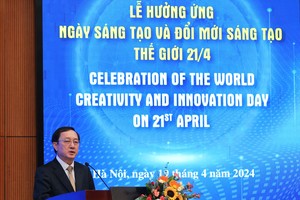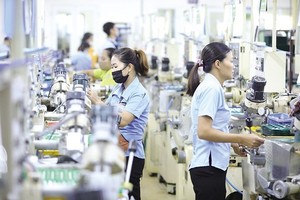
After 10 years carrying out the research, the Stem Cell Institute was able to introduce Cartilatist - the first off-the-shelf medicine product made from stem cells in Vietnam. This product was then exclusively transferred to Van Hanh General Hospital Co. Ltd. for commercial production from July 2018. It has been sold in Vietnam and other ASEAN countries like the Philippines, Laos, and Malaysia.
Cartilatist is a stem cell product derived from human adipose tissue and is used to treat osteoarthritis and degenerative spinal conditions. Each treatment dose, containing 5-10 million stem cells, is stored in a small glass tube at -40oC đến -86oC.
At the beginning of the research in 2007, scientists collected and studied stem cells from human adipose tissue. The cells were separated and then automatically proliferated inside large bioreactors using a special process to select the most suitable ones. This process strictly controlled to ensure safety and high efficiency.
Cartilatist is predicted to advance the treatment for osteoarthritis and degenerative spinal conditions, which are quite common in the world. Instead of merely easing symptoms and reducing pain, controlling inflammation via popular medicine like analgesics, hyaluronic acid and neridronate, physicians can now combine the use of platelet-rich plasma (PRP) with stem cells to improve cartilage damage and thus the VAS scale. Stem cells in this treatment are able to differentiate into cartilage stem cells and make an important contribution to the inhibition of arthritis.
The Stem Cell Institute has also research ways to apply stem cell technology for the treatments for such diseases as musculoskeletal, cardiovascular, type-1 and type-2 diabetes, liver disease. Patients all over the country can now receive treatments at 2-4 times lower costs compared to imported medicine.

This July, the Stem Cell Institute worked with Hong Anh Medical Campus, Prof. Brendon Noble from Westminster University, and the UK Stem Cell Foundation regarding technology transfer for the mass production of Modulatist.
Juliette Waterhouse, CEO of Real Capital London (in the UK) expressed her hope that the Stem Cell Institute collaborate with Prof. Brendon Noble to develop the 2nd and 3rd generations of Modulatist under strict standards of Europe, the US, and the UK.
Assoc. Prof. Dr. Pham Van Phuc, Chairman of the Institute, informed that after 4 working sessions, the above organizations hoped that Modulatist will enter clinical trials by the Institute in Vietnam, Singapore, and the UK. After this piloting time, the technology will be bought for commercialization in the markets of Vietnam, Singapore, and Europe.
Dr. Phuc is quite concerned over the cost to run these trials, which is at least US$10 million and rather beyond the capacity of the Institute. Also, he is afraid that completely selling the technology to the above organizations might mean harder ability for the Vietnamese to approach this medicine due to possibly high price later. He would prefer a collaboration between the Institute and those organizations so that the cost of this medicine is more accessible to Vietnamese people.
The Stem Cell Institute was formerly known as the Laboratory of Molecular Biotechnology (Lab.C) established in 1999 under the HCMC University of Natural Sciences. Thanks to great contributions in the field of animal biotechnology, including stem cell research, Lab.C received VND40 billion ($1.7 million) of investment in 2007, and was changed to the Stem Cell Institute 10 years later. It is now a fully autonomous unit.
Besides Cartilatist and Modulatist, the Institute is completing the research for other products like Vasculatist (treatment of blood vessel blockage), Bonetist (treatment of bone diseases), Liverist (treatment of decompensated hepatitis), Kidist (treatment of chronic kidney failure), or BabyEver (cosmetic with stem cell technology).
























